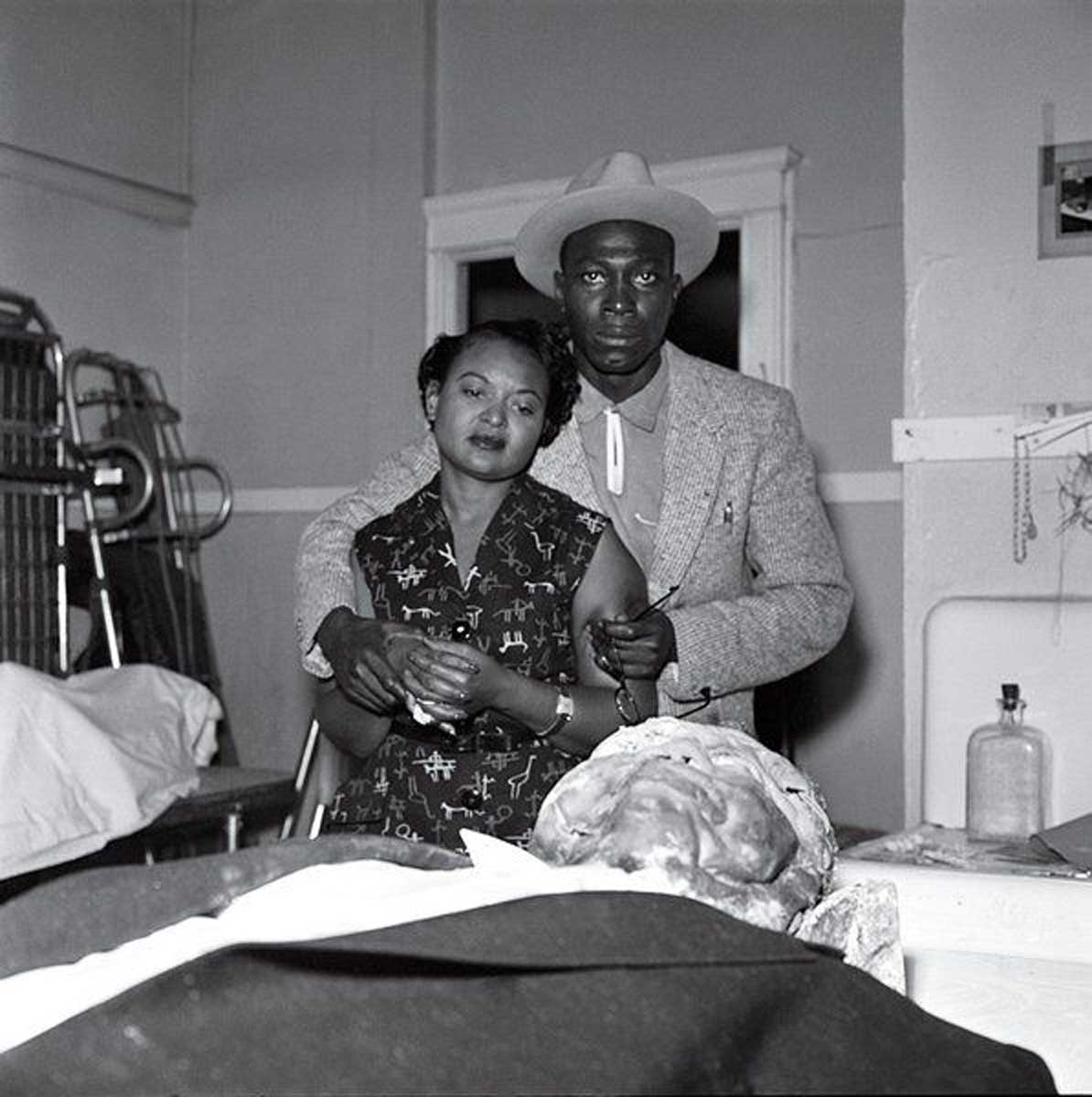Betts Radcliff residents hope for rural water service
Published 5:00 am Wednesday, September 6, 2023

- Rosco Betts works on a truck Tuesday at his home on Betts Radcliff Road.
Mississippi is home to more than 1,200 public water systems, with the majority of them considered to be rural water systems serving 1,000 customers or less. More than 40 years after being bypassed by rural water expansion in Lauderdale County, residents of Betts Radcliff Road hope to soon see one of those 1,200 systems bringing fresh running water to their homes.
Betts Radcliff Road runs south from state Highway 11/80 between Russell and Toomsuba. It crosses the Interstate 20 and dead ends at Russell Mt. Gilead Road. Residents east of Betts Radcliff Road are served by Russell Utilities. To the west is Toomsuba Water System, and Long Creek Water Association is to the south, yet none of the three rural water associations provide service to homes on Betts Radcliff Road.
Supervisor Wayman Newell, whose district includes Betts Radcliff Road, said he first learned about the lack of rural water about three years ago. Residents on the road, he said, pump water from private wells, but some wells are too shallow and run dry in the summer. Other wells pump water with a strange odor that raises questions about its safety. Many households living on Betts Radcliff use the well water for daily tasks but purchase water for drinking.
“I have tried. I have reached out to our congressional delegation in Jackson. I’ve talked with the office of Michael Guest and anybody that wanted to listen to me, including the lieutenant governor,” he said.
Private wells are not uncommon in rural areas, with the Mississippi State University Extension Service estimating approximately 382,000 Mississippians use them as a water supply. Private wells, however, do come with risks as contamination, bacteria and other issues that are monitored closely in public water systems are up to the homeowner or group of homeowners using the well system to test for and detect. The Mississippi Department of Health provides testing for bacteria for private well owners but does not test for minerals, chemicals or other potential contaminants.
As rural water associations expanded across the state in the 1960s and 1970s, Newell said, the residents getting the water service footed the bill. Each home had to purchase its own water meter and pay part of the costs for installing the pipe. On Betts Radcliff, where the majority of residents are Black and lower income, the cost was too much for residents to afford, he said.
Rosco Betts said he and his neighbors have been left behind. As the rest of the county moved forward with clean, reliable drinking water, Betts Radcliff residents were left to deal with smelly water and unreliable wells.
“The water is muddy, and it’s got a bad smell,” he said. “It’s really not fit for nothing.”
With state coffers full of federal stimulus spending, however, that may be about to change, Newell said. In 2022, the state Legislature allocated $300 million from its allocation of American Rescue Plan Act funds for rural water associations and tasked MSDH with creating a grant program to fund local water projects.
After discussions between the Russell Utilities, Toomsuba Water System and Long Creek Water Associations, it was decided Russell would take the lead on the project and apply for the grant, Newell said. The application was sent in early this year ahead of a February deadline, and the project was denied funding.
A second round of funding is now in the works, Newell said, and Russell’s application has been sent in again. With luck, he said, the project will receive funding and work can get underway. Getting water service to residents of Betts Radcliff Road will require several steps, Newell said. First, the two-inch water line, currently running along Highway 11/80 where Betts Radcliff would tie in, is too small to provide the pressures needed to service the number households the project would add to the rural water association’s network. A larger pipe will be needed to meet the demand.
Second, Newell said, will be the installation of a pump station. Betts Radcliff Road is sharply elevated, and a pump will be necessary to get the water into residents’ homes. Finally, he said, the project will require installing new water lines along the road and connecting them to residents’ homes. Installing the new lines will also require boring under the interstate, which will not be easy, he said.
Applications for the second round were due Aug. 28, Newell said, and MSDH is expected to let people know if their project was selected in October. The total cost of the project is estimated at around $1.1 million.
The need to bring rural water to the area is there, Betts said, and the money to fund the project is also available. The only thing lacking is the willingness to take action.
“We are 40 years behind for the water,” he said. “If white folks were living up on that hill, we’d have had water.”
As he waits for word from MSDH, Newell said it will still be some time before residents of Betts Radcliff Road have their water problems solved. Even if construction began immediately, he said, it would still be a year before the work was complete.
The window of opportunity created by the federal ARPA funds is also nearing an end. The legislation, passed in March 2021, said funds must be obligated for projects by the end of 2024 and spent by the end of 2026 or else the money will be forfeit.





